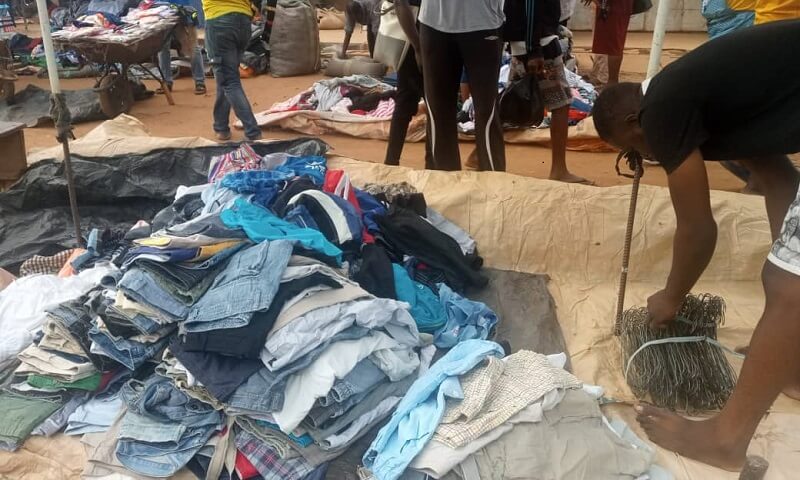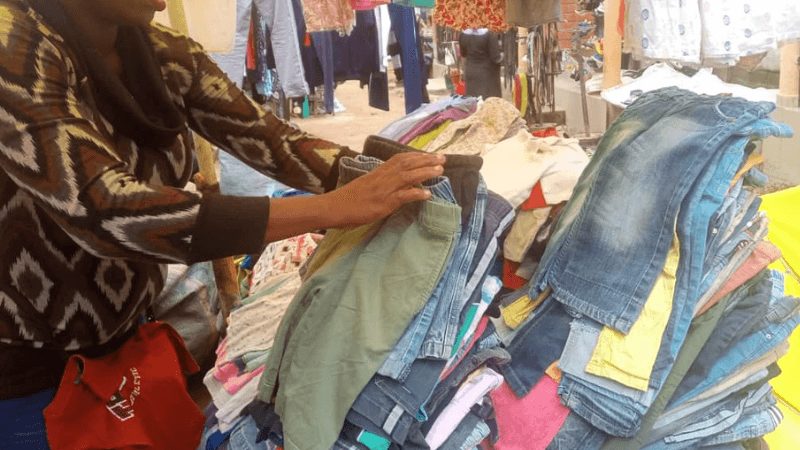How Boutique Owners Repackage, Sell ‘Okrika’ As New Clothes
Owners of Boutique clothing shops are beginning to rethink their strategies due to the threat the ‘Okrika’ business is bringing into the fashion world, according to dealers of the product in Abuja.
Okrika is an Igbo expression used to described fairly used clothes in Nigeria. It is commonly bought by the average and the poor people in Nigeria.
Advertisement
Mrs Obende the Chair Lady of the ‘Okrika’ Traders Union at Dutse Market in Abuja said boutique sellers are gradually reshaping people’s perception of Okrika.
Apart from that, Nigeria’s fashion industry has relied on Okrika clothes to bridge the clothing gap between the rich and the average population.
She said, “It’s now for the rich. The rich come for first grade instead of going to buy clothes from boutiques.
Most boutique and online stores now sell the same clothes with a new trade name- ‘thrift,’ an innovation that has allowed people to shop the products online.
Advertisement
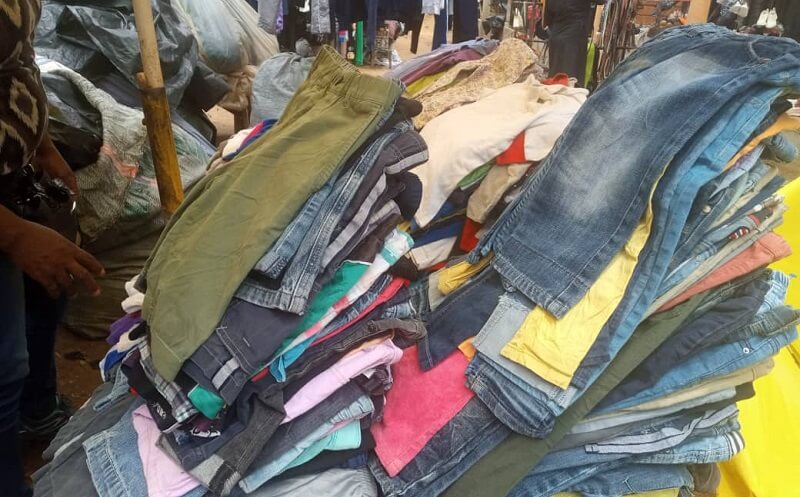
Obende said, “Boutique sellers come and pick good grades and sell in their shops.
“They pick the first grade and they are very selective so that it can measure up with what they sell in their shops.
“Most of them will tell their customers it is Ok. When you get first grades from the UK you find out there are qualities better than China. Some tell customers this is Ok.”
This is one of the innovations boutiques and online thrift stores have used to retain most of their clients.
Advertisement
With the inflation and naira devaluation, it has not been so easy for business. Importers are finding it difficult to get dollars for their imports.
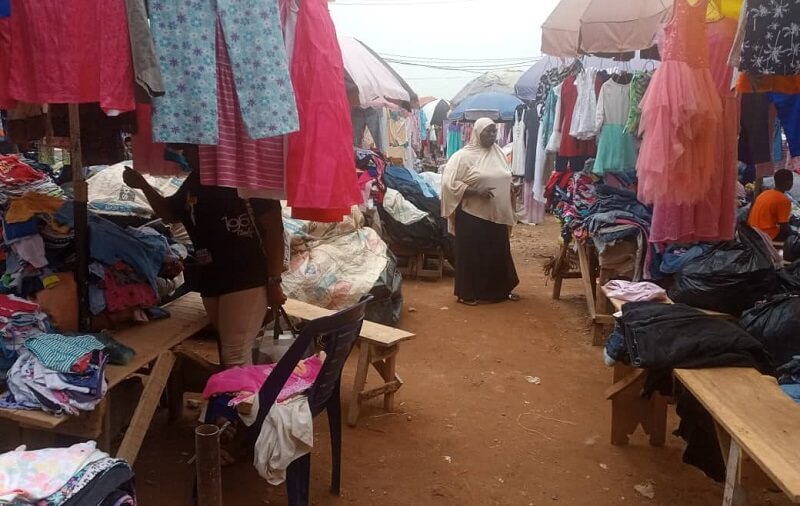
At the current rate, a dollar sells for N506 at the parallel market, a development which has affected the cost of purchasing the goods.
She said most Okrika bales are imported from the United Kingdom, Canada, China, Spain, and Saudi Arabia among others.
“UK bales come in 55kg maximum, but others come in 80kg. The prices of UK bails sometimes exceed those coming from other destinations by N130,000 that is why most importers buy those from areas like America and Canada. Bales from other destinations have also added N60,000 to N80,000.” she said.
For instance, she said UK bales are bought for as high as between N340,000 and N380,000. Before now, the bales are sold for N150,000.
Advertisement
For her, in order to recoup investment and make profit, the UK bales are sold as high as N1,500 per cloth.
“These grades are bought by the rich and the super market operators.
“Those who sell in large quantities are making a gain. Most bales are not original; they don’t purchase abroad again.
“Profit margin has reduced as we sell at the old price,” said the Chair lady.”
At the Nyanya market in Abuja, Shedrack Akachukwu who sells jeans clothing believes the business is evolving.
“Honestly, the rich patronize us a lot. New ones have become costly and the good grades are even more durable. That is why even boutique dealers sell repackaged okrika,” he said.
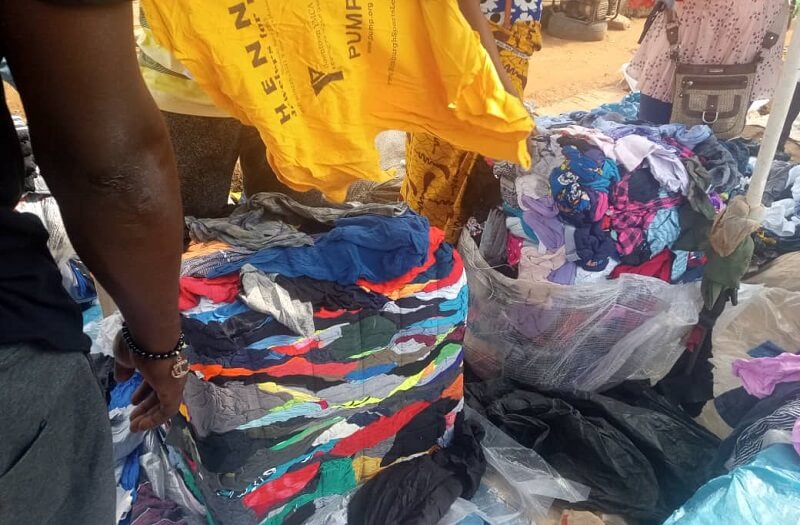
Akachukwu sells his jeans for between N1,500 and N1,000, but this is not the rate at which he sells to boutique dealers.
“The cost of importing these bales has become high and it has affected profit. The import level has become very low due to dollar scarcity,” he added.

He said a bundle of jeans clothing Okrika now costs between N130,000 to N140,000, adding that he supplies to boutiques who repackaged them and sell to their rich customers.
Hand of God, a business that deals with Okrika ladies T-shirts at Nyanya also narrated how he sells to boutiques at wholesale prices.
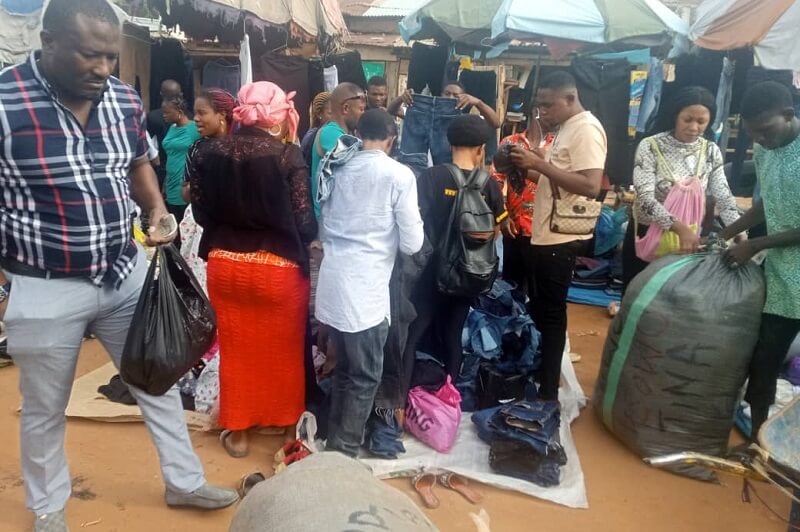
But he lamented that the price of first grade bales has risen to over N140,000 which has also affected their profit margin.
He said some of the Okrika grades are not used, adding “I believe some are factory rejects. Some even come in nylon and labels. they come very new. The boutique sellers make the most profit because of the innovation they have put in place.”
